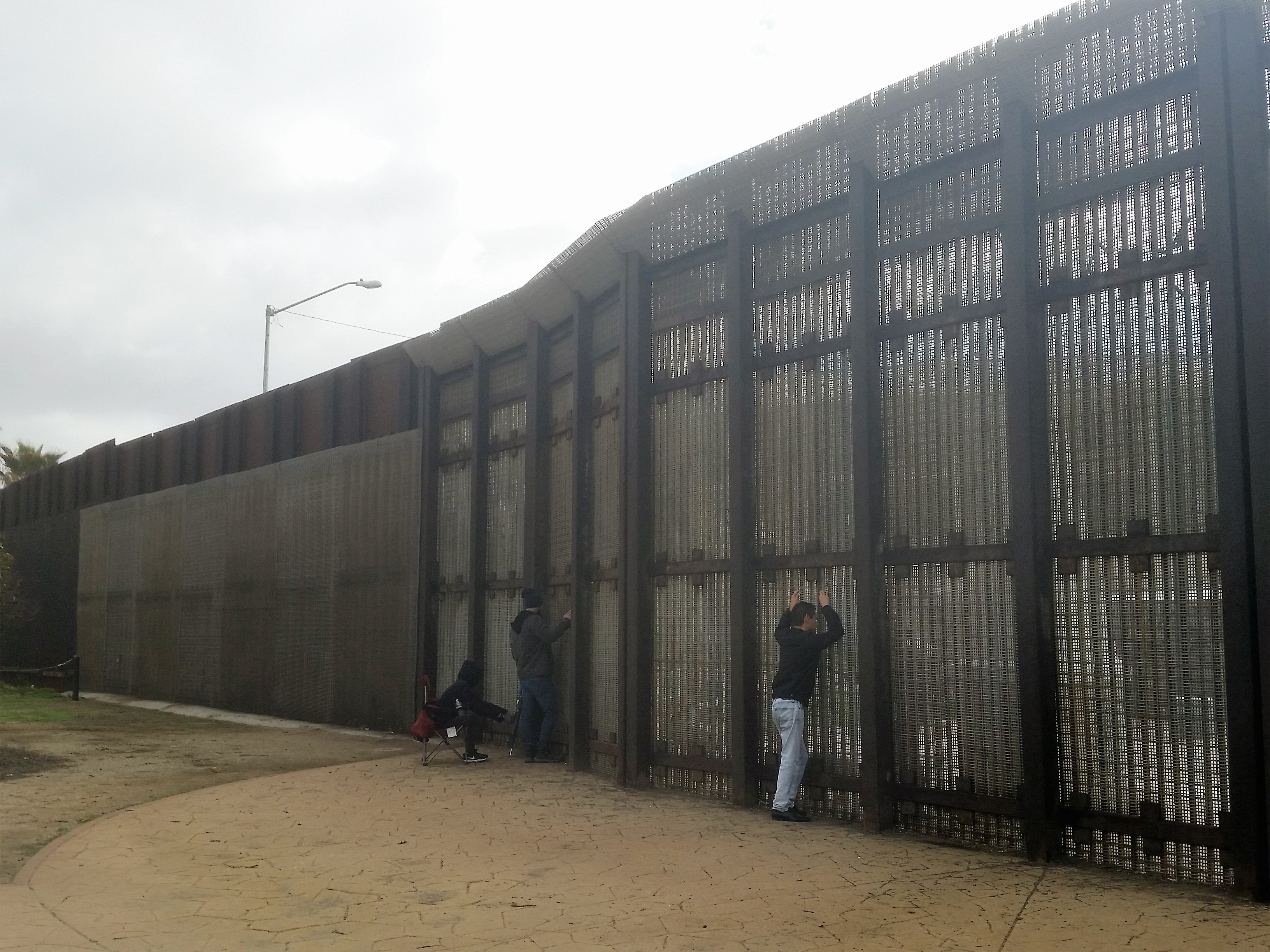
Despite Democratic rhetoric, the budget deal does include additional funding for border walls. The bill funds construction of "pedestrian barriers" (like the one above in Friendship Park in San Diego), which are intended to keep migrants from crossing the border. Kathryn Johnson / AFSC
Congress has reached an agreement to fund the federal government through the end of this fiscal year, avoiding a government shutdown. The proposal is clearly a compromise between the Trump administration, various factions of Congressional Republicans, and Congressional Democrats.
On issues related to immigration, there’s both good news and bad news.
U.S.-Mexico Border
The good news: The final appropriations bill includes less funding for border enforcement and militarization than was requested by the Trump administration. This is thanks to intense public pressure on both Democrats and Republicans. The administration had asked for $3 billion in additional funding for the Department of Homeland Security, and Congress approved only $1.5 billion. The bulk of the difference is at the border.
The bad news: Despite Democratic rhetoric, this bill does include additional funding for border walls. They’re conveniently called “pedestrian barriers,” but pedestrian barriers are physical barriers intended to keep migrants from crossing the border. The expansion of these barriers will cause even more migrant deaths as people fleeing violence and poverty in their home countries are forced to travel through harsher terrain. Barrier construction is also devastating the environment.
What’s more, the appropriations bill includes other funding for further border militarization, including $65 million to speed up the hiring of additional Border Patrol agents and $170 million for additional technology along the border. Although the $65 million doesn’t pay for additional agents, it does pay for changes to hiring practices in preparation for the additional funding for more agents that U.S. Customs and Border Patrol (CBP) anticipates in the following year.
The continued militarization of our border terrorizes border communities and fails to address the lack of accountability for horrific abuses committed by CBP agents.
Detention
The good news: The detention quota—an inhumane federal policy that AFSC and our partners have along with partners have worked for years to abolish—has been eliminated. The detention quota required Immigration and Customs Enforcement to maintain spaces to detain 34,000 immigrants on a nightly basis, and for many years, was a driver of the mass detention of immigrants in the U.S.
The bad news: The bill provides funding to detain well above the number of immigrants that the quota required. In fact, it provides funding for ICE to detain 39,324 immigrants each day across the U.S.
For much of the last year, the number of people held in detention exceeded the quota, recently averaging between 40,000 and 42,000 people per day.
Although we’ve eliminated the quota as a driver for detention, Congress is now handing over funding to allow the administration to keep detaining thousands of immigrants, ripping apart families and lining the pockets of the for-profit prison corporations that own and operate most ICE detention centers.
Interior Enforcement
The good news: Despite Republican attempts, the bill does not pull funding from or otherwise punish sanctuary cities. Nor does it limit Deferred Action for Childhood Arrivals, which helps young people who came to the U.S. as children avoid deportation and obtain employment authorization.
The bad news: The bill maintains the outrageously high funding levels for immigration enforcement. Immigration detention and deportation destroys communities, rips apart families, violates due process rights, and often sends people back to situations of dire poverty and extreme violence.
It also unfortunately maintains funding for E-Verify. Employment verification systems like E-Verify lead to exploitation of workers and a permanent divide in the workforce. To compound those problems, E-Verify has been plagued with errors and problems. Continuing this program will perpetuate existing workplace discrimination and lead to more labor violations.
The bottom line? This bill could have been much worse. The fact that it’s not is due to intense public pressure rejecting the Trump administration’s plan to build a wall on the southern border. Thank you to everyone who took action and contacted their member of Congress!
However, this compromise bill also clearly demonstrates the dangers of focusing only on the border wall. Though that piece of the president’s budget proposal was rejected, the administration still won $1.5 billion more for an already bloated and deadly immigration detention and deportation machine.
This is why we at AFSC will continue to oppose any funding for border militarization or immigration detention or enforcement. We need to keep up the pressure on both Republicans and Democrats to reject the administration’s xenophobic rhetoric that says we need to keep immigrants out. Instead we must work toward humane policies that respect the rights and dignity of all.